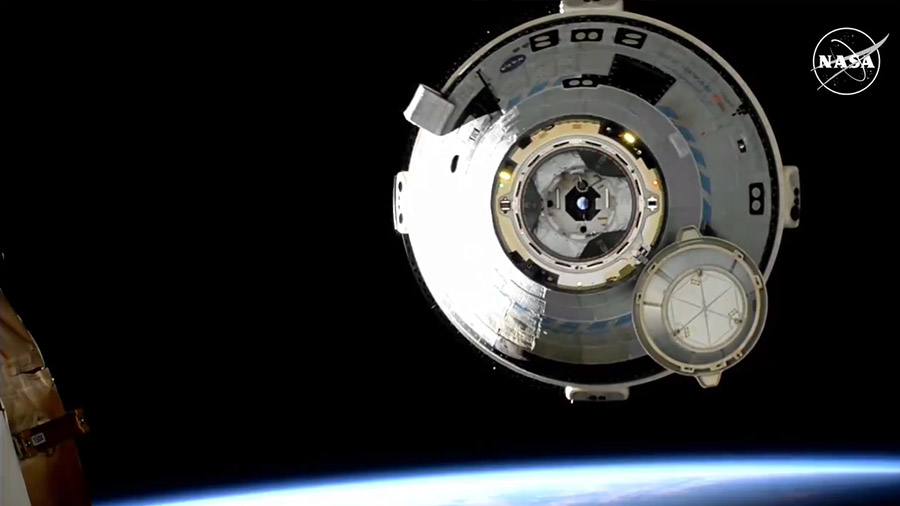NASA and SpaceX are targeting 5:05 p.m. ET on Wednesday, October 23 for the Dragon spacecraft named Endeavour to autonomously undock from the International Space Station. After performing a series of departure burns to move away from the space station, Dragon will conduct multiple orbit-lowering maneuvers, jettison the trunk, and re-enter Earth’s atmosphere for splashdown off the coast of Florida approximately 34 hours later on Friday, Oct. 25.
Tag: Undocking
Uncrewed Starliner Undocks from Station for Return to Earth

At 6:04 p.m. EDT, Boeing’s uncrewed Starliner spacecraft undocked from the International Space Station. Starliner is headed for a deorbit burn at 11:17 p.m. and a targeted landing at 12 a.m. Saturday, Sept. 7, at White Sands Space Harbor in New Mexico.
NASA’s coverage will begin at 10:50 p.m. for deorbit burn, entry, and landing on NASA+, the NASA app, YouTube, and the agency’s website.
Learn more about the mission by following the commercial crew blog, @commercial_crew on X, and @NASACommercialCrew on Facebook.
Learn more about station activities by following the space station blog, @space_station and @ISS_Research on X, as well as the ISS Facebook and ISS Instagram accounts.
Get weekly updates from NASA Johnson Space Center at: https://roundupreads.jsc.nasa.gov/
Get the latest from NASA delivered every week. Subscribe here: www.nasa.gov/subscribe
NASA, Boeing Teams “Go” for Starliner Uncrewed Return

NASA and Boeing concluded a detailed Delta-Flight Test Readiness Review on Thursday, polling “go” to proceed with undocking of the uncrewed Starliner spacecraft no earlier than 6:04 p.m. EDT on Friday, Sept. 6, from the International Space Station, pending weather and operational readiness.
After undocking, Starliner will take about six hours to reach the landing zone at White Sands Space Harbor in New Mexico. The spacecraft will touch down about 12:03 a.m. on Saturday, Sept. 7, descending under parachutes and with inflated airbags to cushion the impact. Recovery teams at the landing zone will safe and prepare the spacecraft for a return to Boeing’s Starliner factory at NASA’s Kennedy Space Center in Florida.
Following NASA’s decision on Aug. 24 to return the Starliner spacecraft uncrewed, mission managers and flight controllers updated elements of the Starliner systems with specific information for this mission that will allow the spacecraft to execute the return. The uncrewed Starliner spacecraft will perform a fully autonomous return with flight controllers at Starliner Mission Control in Houston and at Boeing Mission Control Center in Florida. Teams on the ground are able to remotely command the spacecraft if needed through the necessary maneuvers for a safe undocking, re-entry, and parachute-assisted landing in the southwest United States. NASA will host a media briefing to discuss more details about return operations, and the agency will share more on the briefing schedule and return coverage.
Starliner has previously completed a successful uncrewed entry and landing during two orbital flight tests. During one of the flight tests, the spacecraft also proved it could autonomously undock with the station safely.
As part of NASA’s Boeing Crew Flight Test, agency astronauts Butch Wilmore and Suni Williams flew aboard Starliner to the station in June. Wilmore and Williams will remain aboard the orbiting complex as part of the Expedition 71/72 crew through February 2025, when they’ll return with the agency’s Crew-9 mission.
